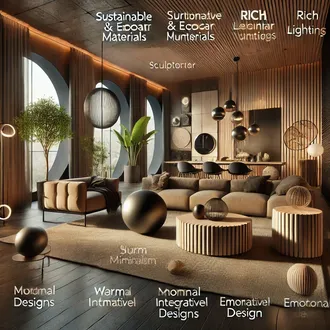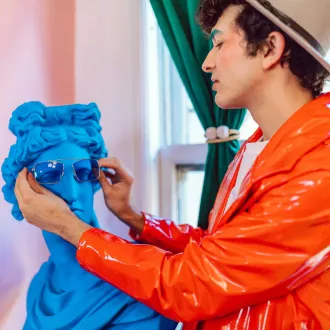Transcription Introduction to the interior decoration course
The concern for the decoration of home spaces, although it has long ceased to be exclusive to the wealthy classes, became a priority for many people when the coronavirus suddenly appeared; a situation that led most families to remain confined to their homes, forcing them to adapt their spaces to feel better while they continued working, studying, exercising or simply fighting consternation.
This course was created with the intention of providing many people with different knowledge and budgets, the necessary elements that would allow them to discover new ways to combine the various ingredients of interior decoration, in the creation of more comfortable and attractive spaces, which are connected to their feelings and cause them well-being and satisfaction.
Although you can become a good decorator if you make an effort to study and cultivate your spirit through the appreciation of works of art, reading, the company of sensitive people, etc., there are certain innate conditions that will multiply your growth and progress as a decorator. Here are some qualities that you may already know you possess and others that, after learning about them, will also seem very familiar to you.
Innate aptitude for decoration
- Manifest a special sensitivity for the artistic or aesthetic that drives you to contemplate, interpret, imagine and value everything that surrounds you with a different look.
- To look for, discover and highlight the beauty in everything you do, making other people perceive it as well.
- Have vision to estimate distances, size, orientation and the correct proportion of objects and spaces in different situations.
- Possess the ability to easily grasp the tastes and preferences of other people, making it easier for you to influence their feelings and decisions in an affective way.
- To have natural abilities for the representation of objects that combine lines, figures or other elements. Page break.
What knowledge do you need to acquire to become an interior decorator?
- To know the effects on decoration caused by the modification of any of the elements that compose it: space, lines, shape, light, color, texture and style.
- To know and combine the characteristics of the main decoration styles that have existed throughout the history of mankind.
- Master drawing techniques that allow him/her to make preliminary representations where the dimensions of the spaces, the distribution of objects, lights, etc. are specified.
- Use computer tools and the Internet to achieve more professional presentations of their projects.
- Know the properties and uses of the different materials and devices used in decoration as well as their costs and other relevant economic valuations.
- Master and take into account the codes and general standards for the decoration of the different interior spaces of houses, commercial buildings, etc.
Main differences between the job competencies of an interior decorator and an interior designer or interior designer
The main difference lies in the fact that interior designers require a series of broader studies on architectural concepts, which allow them to carry out more complex interior structural reforms, such as the removal or placement of solid walls, deep reforms in the electrical system, the conversion of rooms into kitchens, or bathrooms, etc. These professionals could also propose furniture, colors, textures and forms of lighting, but this would not be their priority.
Instead, decorators would be trained in the selection and installation of the different decorative elements of a particular interior space, committed above all to the final aesthetic value.
introduction




